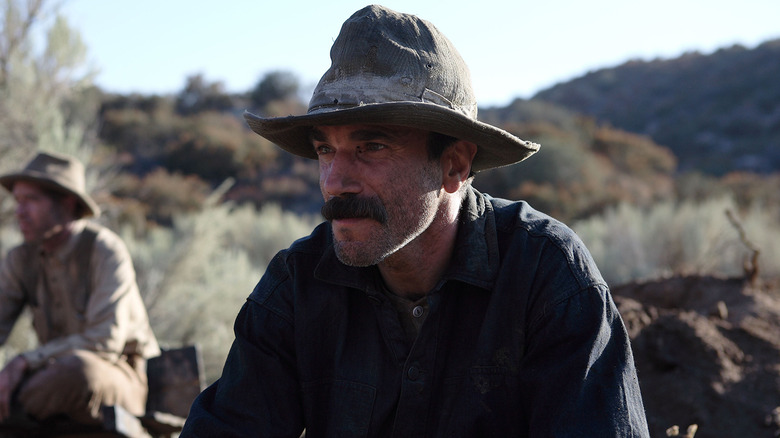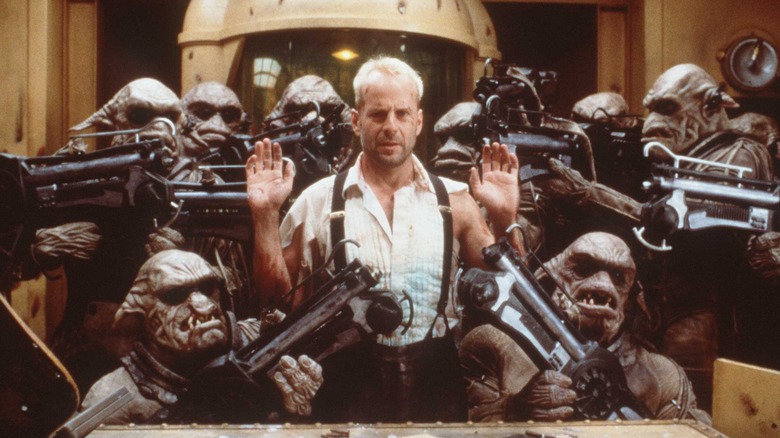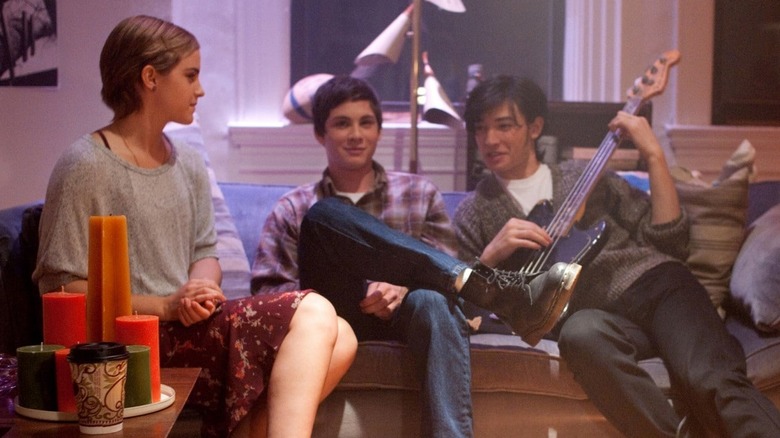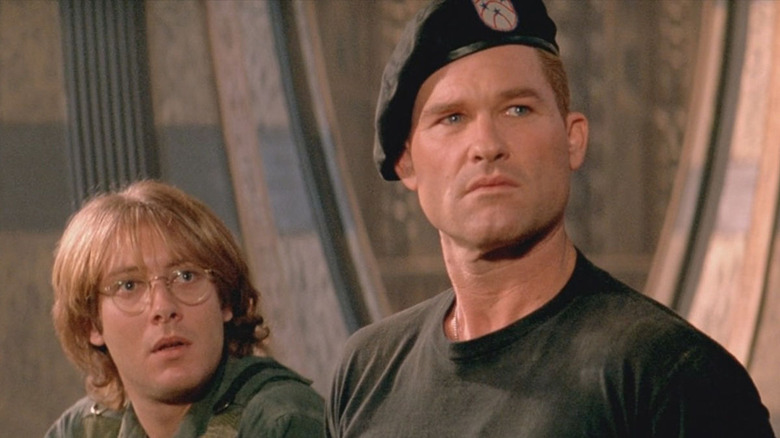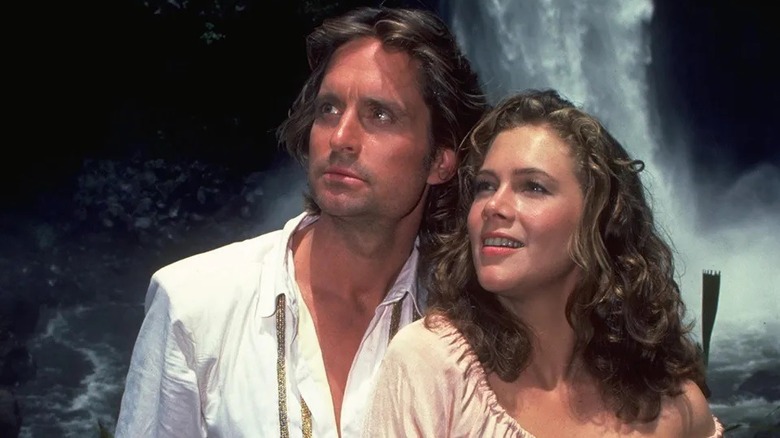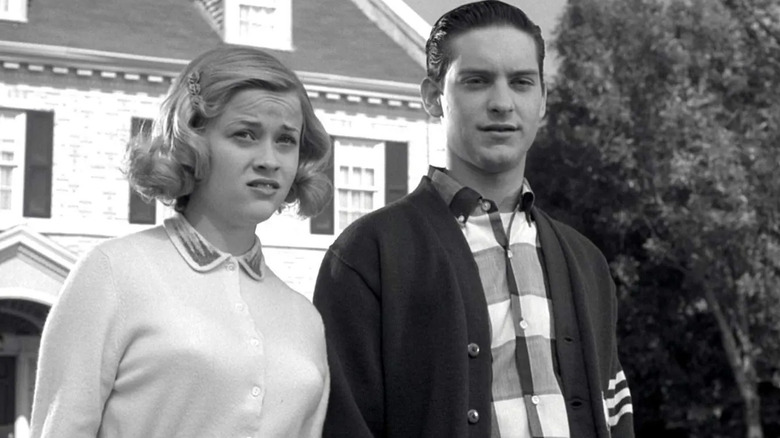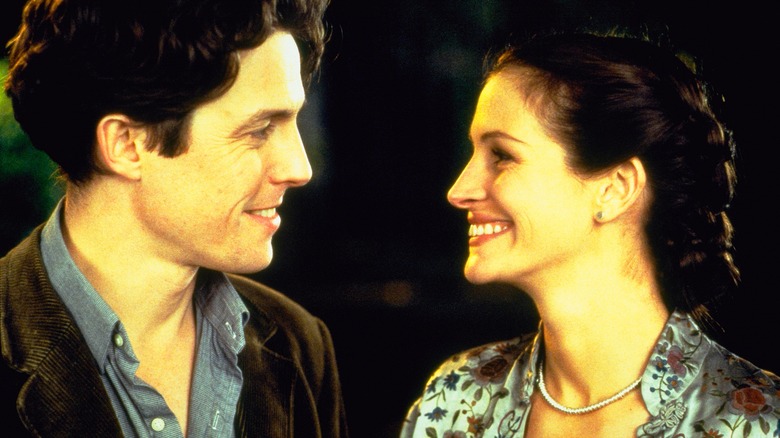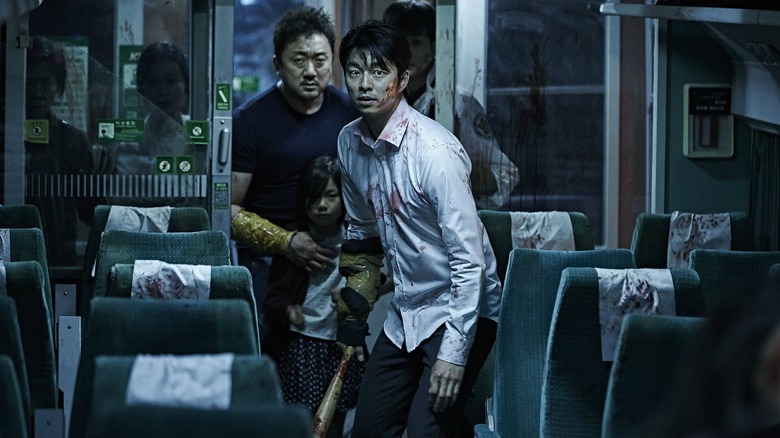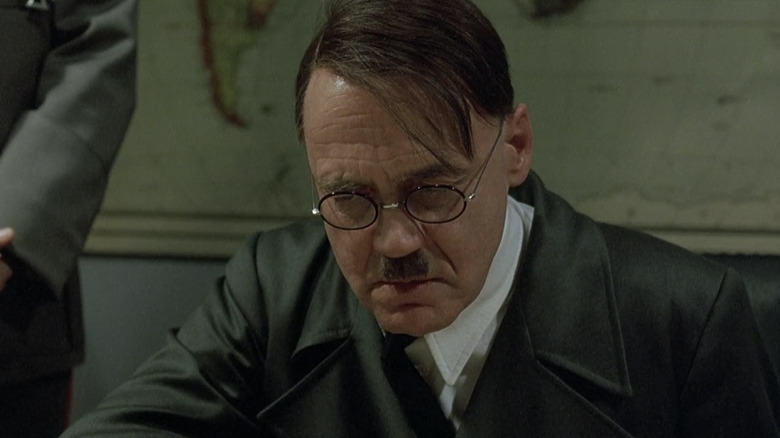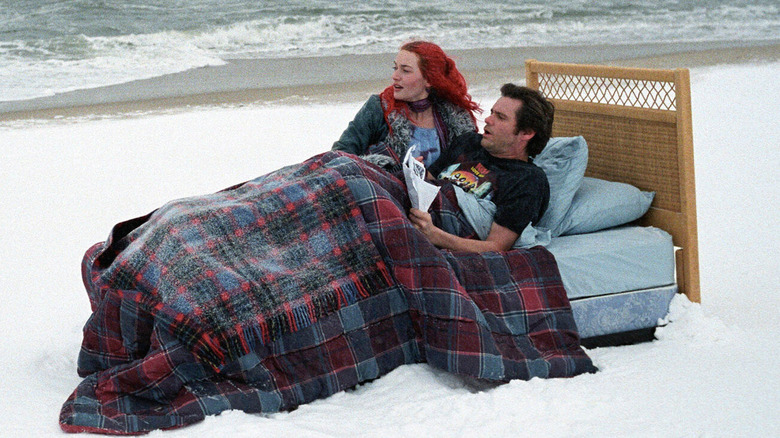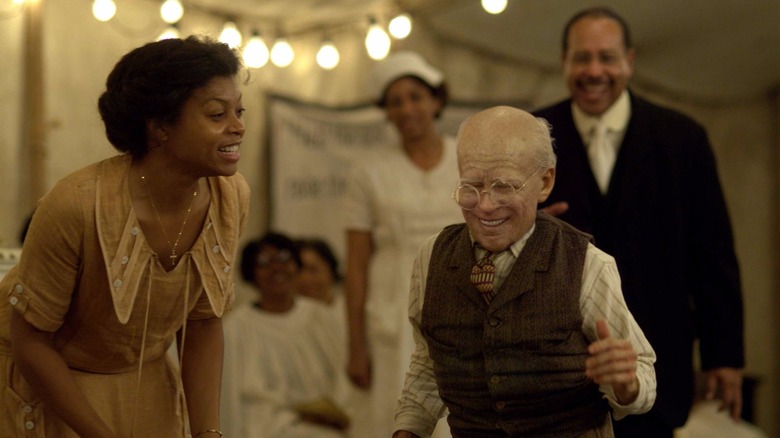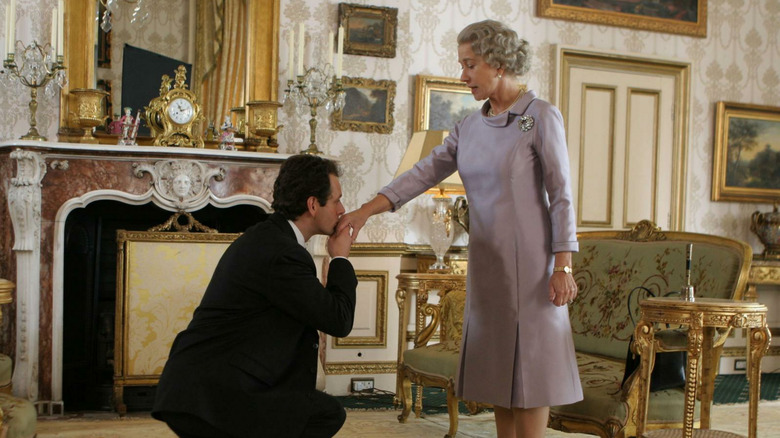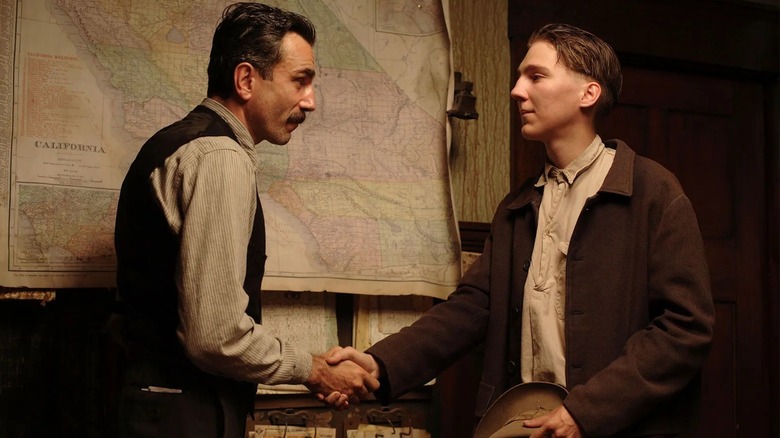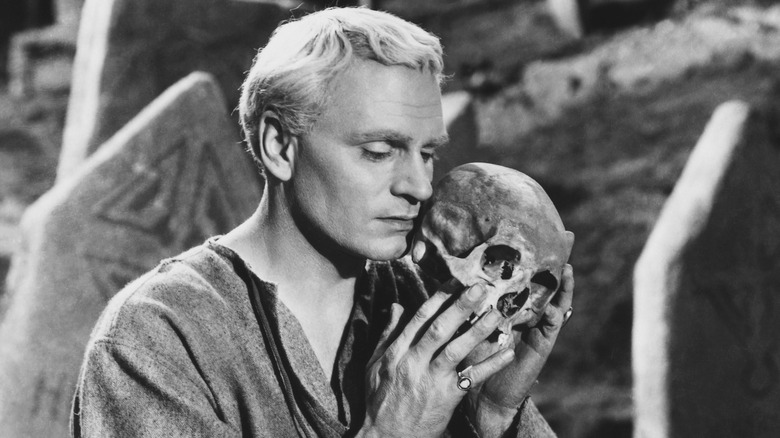Award Winning Movies You Can Watch For Free Right Now On YouTube
The cost of streaming service subscriptions continues to go up, but film fans looking to enjoy the best works of cinema need not necessarily panic. Though you may be hard-pressed to find more affordable access to certain titles — especially those exclusive to platforms like Netflix, Disney+, Hulu, and Max — the advent of free ad-supported streaming TV services (otherwise known as FAST streamers) can offer cost-effective, if intermittently interrupted entertainment experiences.
One player in this space that often gets overlooked is YouTube, a website mostly associated with individual creators. However, while the platform is still geared toward user-generated content, YouTube also offers a sea of options for those seeking traditional entertainment in the form of mainstream films and television shows. Most of these options are only available through digital purchase or rental, though some of the best titles the site has access to are available right now for free.
The Fifth Element (1997)
Though most of the dialogue in "The Fifth Element" (a 23rd century-set sci-fi thriller about a cab driver and a mysterious woman trying to save Earth) is in English and the film stars major English-language actors like Bruce Willis, Milla Jovovich, Gary Oldman, and Chris Tucker, it's technically a French film. It was directed by globally renowned French director Luc Besson and was produced by the French company Gaumont.
The film's country of origin is worth noting when discussing its track record at American awards shows, which have historically favored American-produced films in most major categories. For example, at the 70th Academy Awards in 1998, "The Fifth Element" was only nominated for best sound effects editing, which it lost to James Cameron's "Titanic." However, at that year's César Awards — France's preeminent awards ceremony for film — it was nominated in eight categories, including best director (which Besson won) and best film.
At other ceremonies around the world, "The Fifth Element" was consistently recognized for its visual effects, scooping best special effects at the BAFTAs. Curiously enough, Besson, Jovovich, and Tucker all received nominations at the 1997 stinkers bad movie awards, though none of them "won" in their respective categories. Since its release, "The Fifth Element" has become recognized as the ultimate sci-fi cult classic.
The Perks of Being a Wallflower (2012)
If you're in the mood for a bittersweet coming-of-age story, YouTube arguably has no better option than "The Perks of Being a Wallflower." The film stars early-2010s young adult icons Logan Lerman and Emma Watson alongside a pre-DC Ezra Miller, all playing high school students in the early '90s struggling to cope with the complex emotional issues that arise at that age. It was written and directed by Stephen Chbosky, who adapted it from his 1999 novel of the same name.
Though less famous than their co-stars at the time, Miller drew much of the attention during awards season, with their portrayal of a gay high school student earning wins from the Hollywood Film Awards, the Boston Society of Critics Awards, and the Santa Barbara International Film Festival, among many others. Several institutions specifically nominated and/or awarded Miller as the year's breakout talent. It is also thanks to their LGBTQ+ subplot that "The Perks of Being a Wallflower" won the GLAAD Media Award for outstanding film. To this day, it's remembered as one of the best moments of Ezra Miller's career.
The film also performed notably well at prominent popular vote awards ceremonies, at which films are honored based on votes from viewers online. It was recognized as the best drama film of the year by the audiences of both the People's Choice Awards and Teen Choice Awards, the latter of which also recognized Lerman and Watson with acting honors.
Stargate (1994)
As far as award-winning films go, this might be a controversial inclusion, and is certain to be one of the most divisive titles on this list. Nevertheless, we'd be remiss not to mention that the 1994 cult science fiction movie "Stargate" is available to watch for free on YouTube right now. It features James Spader in one of his earliest roles as Dr. Daniel Jackson, a linguist hired to study ancient Egyptian hieroglyphs scrawled on mysterious stones. These stones have attracted the attention of the U.S. military, including Air Force Colonel Jack O'Neill (Kurt Russell). This convergence of military and scientific interest results in the discovery of alien civilizations, as well as the titular stargate, which allows one to travel untold distances across the universe.
The "Stargate" timeline became rather convoluted due to the film spawning an entire multimedia franchise spanning multiple decades. The TV series "Stargate SG-1" is generally seen as superior, but the film has a certain charm that's only grown in the three decades since it came out. Of course, as fans of the franchise know all too well, the movie was initially met with mixed reviews from critics (Roger Ebert famously derided it as a "film school exercise"). It did, however, win a handful of awards, most notably scooping best science fiction film at the 1994 Saturn Awards, beating out "Stark Trek: Generations," "Timecop," and the video game adaptation "Street Fighter," among others.
Romancing the Stone (1984)
One year before "Back to the Future," filmmaker Robert Zemeckis brought audiences to a radically different world with 1984's "Romancing the Stone." It would quickly be overshadowed by the aforementioned classic, but the premise has remained surprisingly arresting to this day, both to audiences and Hollywood executives. Much like 2022's "The Lost City" and 2024's "Argylle," Zemeckis' film follows a novelist (played by Kathleen Turner) who suddenly finds herself at the center of a real-life adventure from her books, complete with a striking avatar of her very own protagonist (an all-action Michael Douglas).
At the 42nd Golden Globes in 1985, "Romancing the Stone" beat four other films — including "Beverly Hills Cop" and "Ghostbusters" — to win best comedy or musical. The only other award it was nominated for that evening was best actress in the same category, which Turner won. She was also nominated for her role at the Los Angeles Critics Association Awards (again emerging victorious), the National Society of Film Critics Awards, and the Jupiter Awards. Douglas and Zemeckis were also nominated for Jupiters, though neither won. In terms of the Oscars, "Romancing the Stone" was only nominated for one Academy Award — it got a nod in the best film editing category, which it lost to "The Killing Fields."
Pleasantville (1998)
Though he's now best known as the star of Sam Raimi's "Spider-Man" trilogy, Tobey Maguire was once a young actor slowly making his way toward that level of stardom. During this period in his career, he co-starred in the 1998 fantastical comedy "Pleasantville" alongside the also up-and-coming Reese Witherspoon. The pair played a brother and sister who get pulled into the bland and literally colorless world of a 1950s sitcom, with their modern sensibilities coming into conflict with and eventually influencing the stagnant society. The film was written and directed by Gary Ross, who would later go on to helm the first "Hunger Games" film in 2012.
"Pleasantville" was released to critical acclaim, particularly for its distinct visual appeal. At the 71st Academy Awards in 1999, it was nominated in three categories — best art direction/set direction, best costume design (both of which it lost to "Shakespeare in Love"), and best original dramatic score, which was composed by legendary musician Randy Newman. Despite being snubbed by the Oscars, Joan Allen took home many best supporting actress awards throughout the year's circuit for playing the repressed Parker family matriarch Betty. Her honors included a Saturn Award, a Critics Choice Award, and a Satellite Award. The Saturn Awards also honored Maguire with the award for best performance by a younger actor.
Notting Hill (1999)
A classic romantic comedy if there ever was one, "Notting Hill" would be a safe choice for almost any viewer looking for something easy and satisfying to watch, even if they aren't always partial to films within this genre. It stars Hugh Grant as Will Thacker, a British bookshop owner who unexpectedly finds himself in a whirlwind, on-and-off relationship with an American movie star who frequently works in the United Kingdom (Julia Roberts). The plot is mostly comforting rom-com fluff, scripted in such an undeniably charming way that it could come from no screenwriter but one of the genre's defining voices himself, Richard Curtis.
"Notting Hill" won many awards in the U.K., including the BAFTA Audience Award in 2000. Grant and Roberts drew several nominations in the categories of best actor/actress, as did Rhys Ifans, who plays the supporting role of Will's chaotic and often disheveled roommate Spike. Ifans was nominated for best supporting actor at that year's BAFTAs, though he lost to Jude Law for his role in "The Talented Mr. Ripley." Grant and Roberts, meanwhile, earned nods at the Golden Globe Awards, as did the film itself for best musical or comedy, though it ultimately lost out to "Toy Story 2."
Train to Busan (2016)
By now, "Train to Busan" is well known among horror fans around the world as a not-so-hidden gem in the zombie apocalypse subgenre. If you have yet to see it, it's just one of many underappreciated Korean horror movies you've missed. Directed by Yeon Sang-ho, the film explores a viral outbreak occurring on South Korea's high speed railway. Tense, tragic, and packed with all the action anyone could ask for from the genre and then some, it isn't hard to see why "Train to Busan" spread about as fast as the virus it depicts.
"Train to Busan" was met with a warm reception globally and was recognized with dozens of nominations from multiple countries. In South Korea, it was nominated for four Baek Sang Art Awards, with Yeon winning best new director and Kim Eui-sung winning best supporting actor. It earned over twice as many nominations at the 2016 Blue Dragon Awards as well, taking home the audience choice award and the best technical award.
Film festivals and academies in Spain, Canada, and the United Kingdom awarded "Train to Busan" with various honors. In the United States, it was nominated for a Saturn Award for best horror film (losing to Fede Álvarez's equally brilliant "Don't Breathe") and it also won a Fangoria Chainsaw Award for best foreign language film.
Downfall (2004)
You may have already seen at least one scene from "Downfall" on YouTube. Since 2006, a climactic scene from the German historical drama (which follows the waning days of Adolf Hitler's life and command of the German military, largely told from his infamous bunker in Berlin) has been spread across the internet, as content creators from all around the world continue to edit satirical subtitles over a tense conversation between Hitler (Bruno Ganz) and his generals. (As recently as August 2024, the format was used to comment on and comedically disparage right-wing riots in Britain.)
However, while "Downfall" may well be remembered by most as the source of one of the internet's earliest and most enduring memes, this draws attention from the fact that the film was regarded as a unique cinematic achievement in its own right when it was first released in 2004. It was nominated for best foreign language feature at several international film festivals and foreign film awards, including the 77th Academy Awards and the British Independent Film Awards, winning the latter. Ganz was also widely lauded for his performance in the film, earning various acting nominations and taking home the award for actor of the year from the London Critics Circle Film Awards.
Eternal Sunshine of the Spotless Mind (2004)
We previously included "Eternal Sunshine of the Spotless Mind" on our list of movies you should never watch with your partner, which is a testament to how powerful it is as an exploration of romantic grief. The science fiction-tinged drama stars Jim Carrey as a man who impulsively decides to undergo a procedure which will erase all memory of his longtime romantic partner (Kate Winslet), who recently chose to undergo the same procedure herself following their break up. During the procedure, he finds himself reliving their relationship in reverse, having his decision to forget her challenged as his happiest memories of her begin to slip away.
At the 77th Academy Awards in 2005, Charlie Kaufman, Michael Gondry, and Pierre Bismuth won the award for best original screenplay, overcoming a crowded pool of talent that included Brad Bird ("The Incredibles"), John Logan ("The Aviator"), and Mike Leigh ("Vera Drake"). Kate Winslet was also nominated for best performance by an actress in a leading role, though she lost to "Million Dollar Baby" star Hilary Swank. While he wasn't nominated for an Oscar, Carrey was nominated for a Golden Globe, as were the screenwriters and Winslet. Despite being overlooked by the major bodies, Carrey triumphed at the International Cinephile Society Awards, the San Diego Film Critics Society Awards, and the International Online Cinema Awards.
The Curious Case of Benjamin Button (2008)
Known for tense and often angry thrillers, director David Fincher surprised fans in 2008 with "The Curious Case of Benjamin Button," a romantic drama adapted from F. Scott Fitzgerald's short story about a man (played by Brad Pitt in the film) who ages in reverse. At the 81st Academy Awards, "Benjamin Button" led proceedings with a whopping 13 nominations, just one nomination shy of joining the tied record holders – "La La Land," "Titanic," and "All About Eve" each got 14 nominations.
Despite this, however, it actually lost the vast majority of the awards it was in contention for, with Danny Boyle's "Slumdog Millionaire" dominating most categories that evening. It did win best fantasy film at the Saturn Awards, and it was nominated a staggering 160 times for various awards across the globe. Among the cast, Tilda Swinton and Taraji P. Henson took home acting honors from multiple different ceremonies. Both give memorable performances, and if you're after some top-notch acting, then you can do far worse than watching "The Curious Case of Benjamin Button" for free on YouTube.
The Queen (2006)
British screenwriter Peter Morgan has made his career writing about British politics and the royal family, most recently and prominently with the Netflix series "The Crown." Long before the series began streaming, however, Morgan made a feature film called "The Queen," the second entry in his unofficial trilogy of films chronicling the political environment of the U.K. under Prime Minister Tony Blair. Blair is portrayed by Michael Sheen in all three films, and here, he comes into conflict with Queen Elizabeth (Helen Mirren) over how they should handle the tragic death of Princess Diana.
"The Queen" was nominated in six categories at the 79th Academy Awards in 2007, with Mirren taking home best performance by an actress in a leading role (defeating Meryl Streep for "The Devil Wears Prada" in what many saw as a straight head-to-head going into the ceremony). Mirren swept most best actress categories for the remainder of the season, coming out on top at the BAFTAs, the Critics Choice Awards, and the Golden Globes. Morgan was awarded best screenplay at the latter, while director Stephen Frears also got a nomination, losing to Martin Scorsese for "The Departed."
There Will Be Blood (2007)
Directed by acclaimed filmmaker Paul Thomas Anderson, "There Will Be Blood" follows a ruthless oilman (played by Daniel Day-Lewis) on a dark quest to amass as much wealth as possible by any means necessary. With each moral sacrifice comes tragedy and human cruelty almost beyond imagination. It's certainly not a film for the faint of heart, and one best entered with as few plot details as possible — in other words, if this sounds interesting to you, then go ahead and stream it for free on YouTube as soon as possible. (You can thank us later.)
At the 80th Academy Awards in 2008, "There Will Be Blood" was nominated in eight categories — tying for most nominations that year with its toughest competition, the Coen brothers' hit "No Country for Old Men." Though it was nominated for best picture, best director, and best adapted screenplay, it lost all three to "No Country for Old Men." Day-Lewis did take home the award for best actor (beating out George Clooney, Johnny Depp, Viggo Mortensen, and Tommy Lee Jones) and "There Will Be Blood" also scooped best cinematography. It performed similarly at other awards ceremonies that year, with Day-Lewis sweeping almost all the best actor categories for his powerhouse performance as Daniel Plainview.
Hamlet (1948)
If you're in the mood for a real classic, YouTube also has you covered. Many of the free options currently available on the site are adaptations of plays by William Shakespeare, most notable among them the 1948 film "Hamlet." It features renowned thespian Laurence Olivier in the role of the titular Prince of Denmark, who (spoiler alert for a play written over 400 years ago) goes on a psychopathic killing spree after the murder of his father by his uncle.
Olivier — who also directed "Hamlet" – won both best actor and best picture, the latter being a somewhat historic win as it was the first foreign film to do so (not to be confused with the first foreign language film to win best picture, which was "Parasite" in 2019). It was fourth-time lucky for Olivier, who had previous best actor nominations for 1939's "Wuthering Heights," 1940's "Rebecca," and 1946's "Henry V." He wasn't able to attend the ceremony due to his theater commitments across the pond, though he later celebrated his victory at a specially organized event in London.
